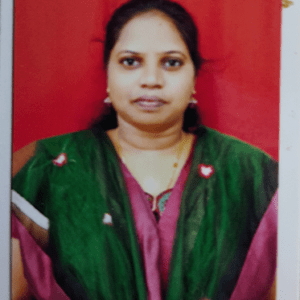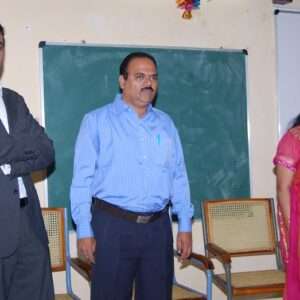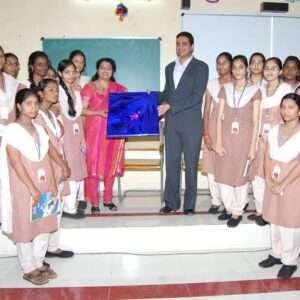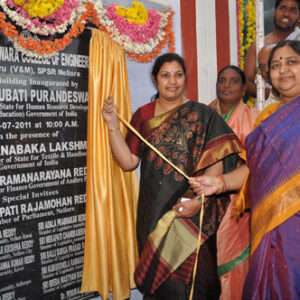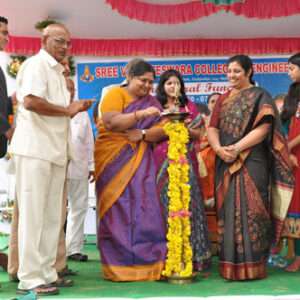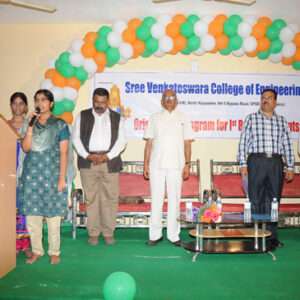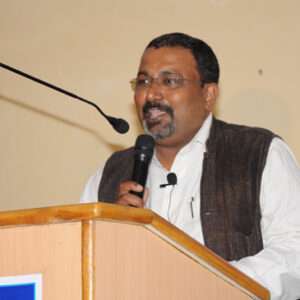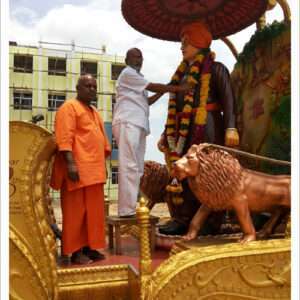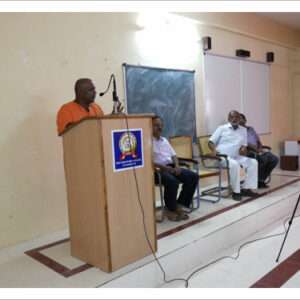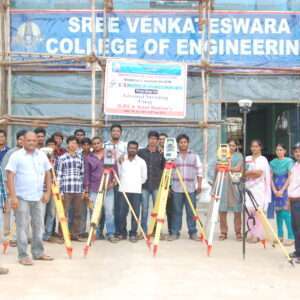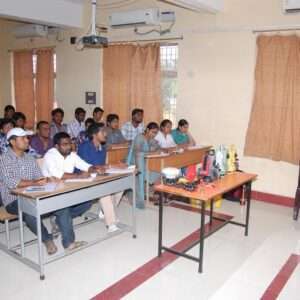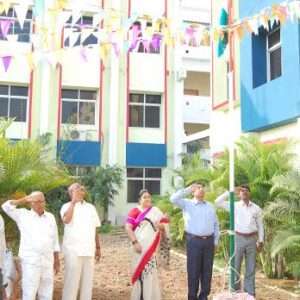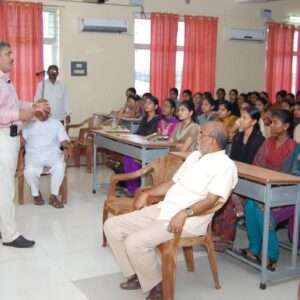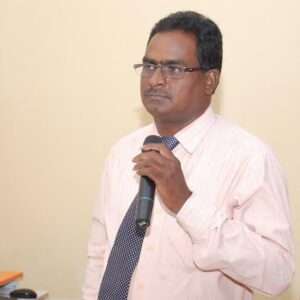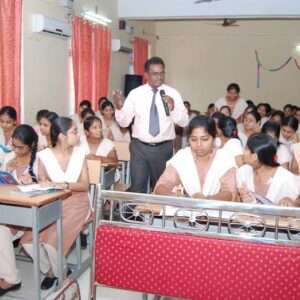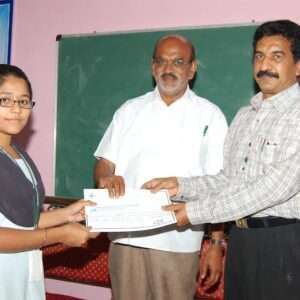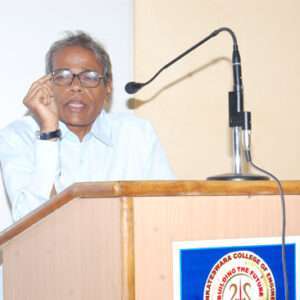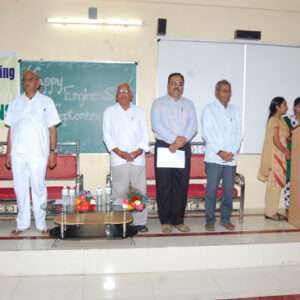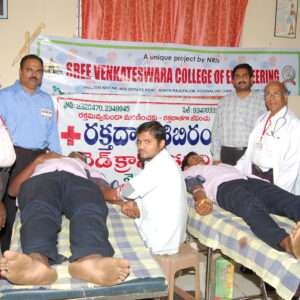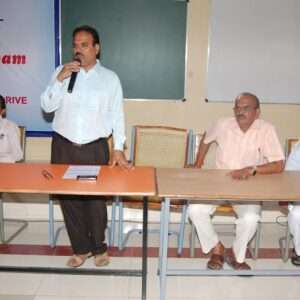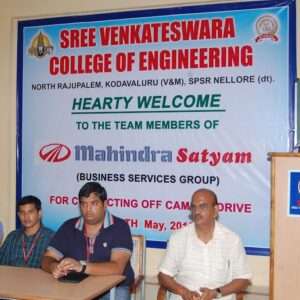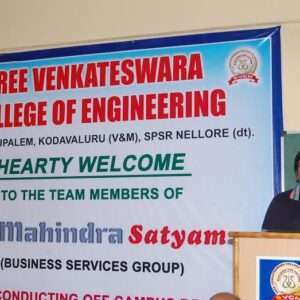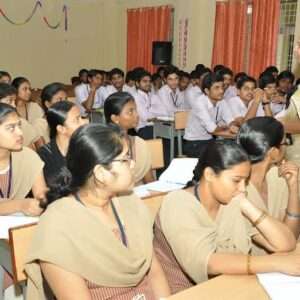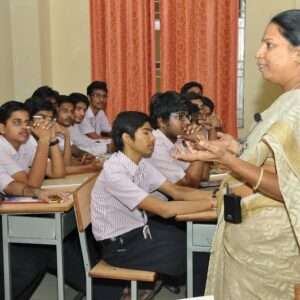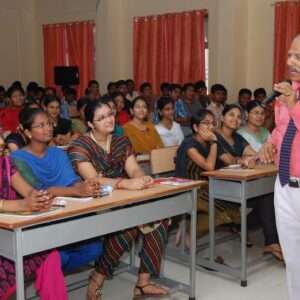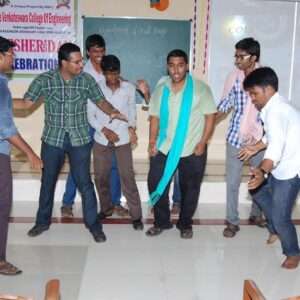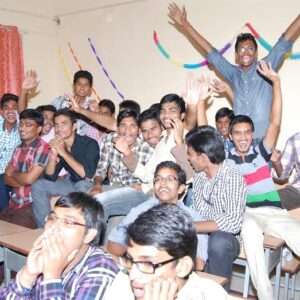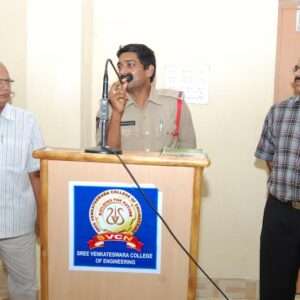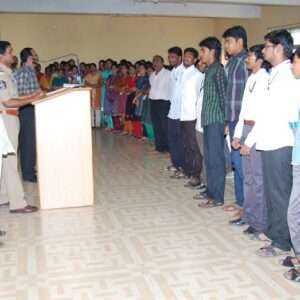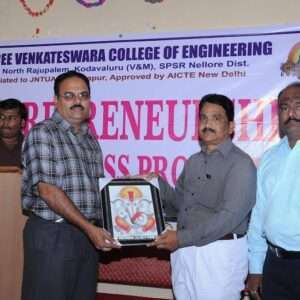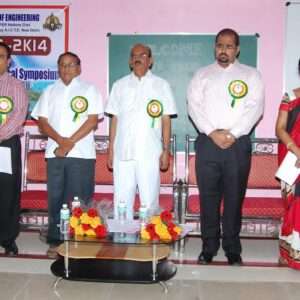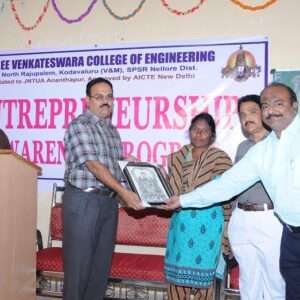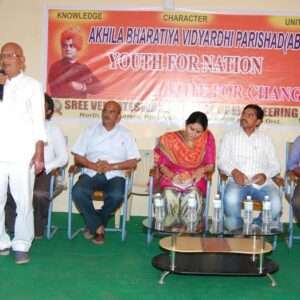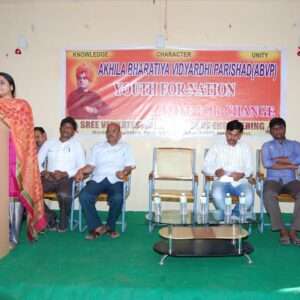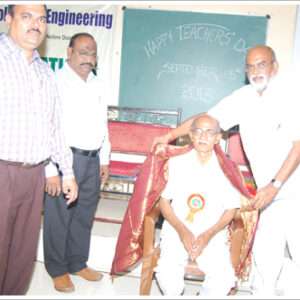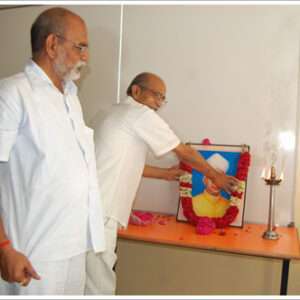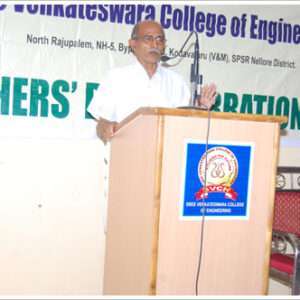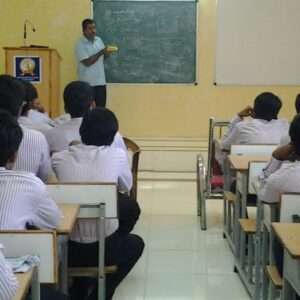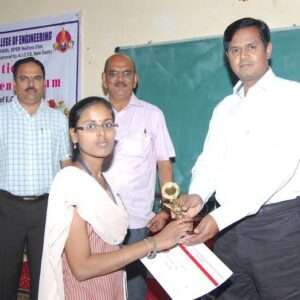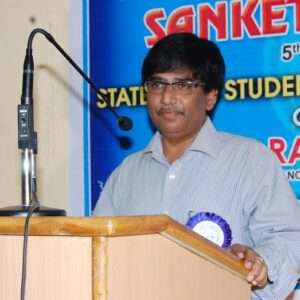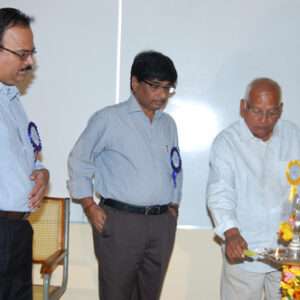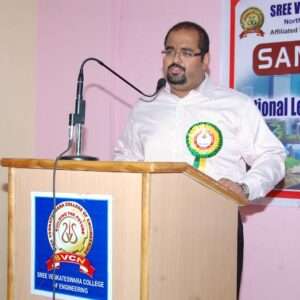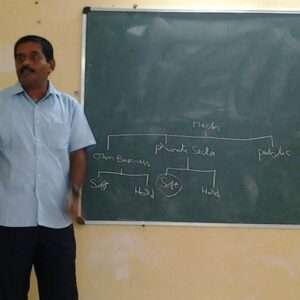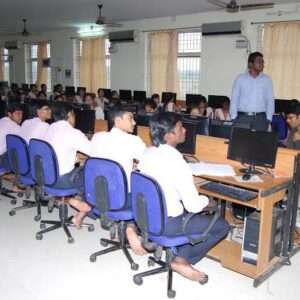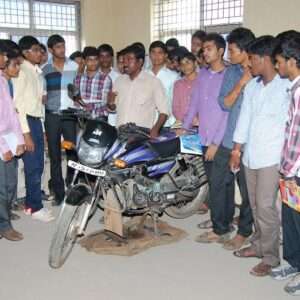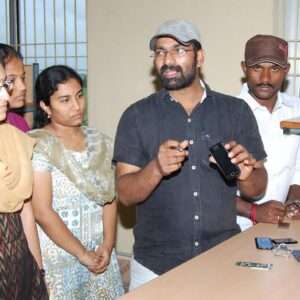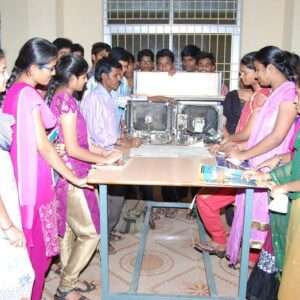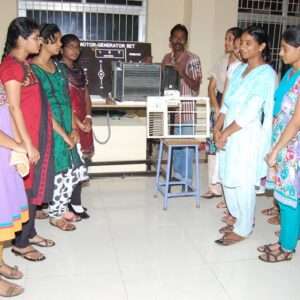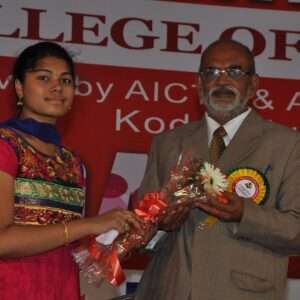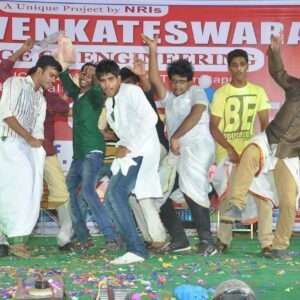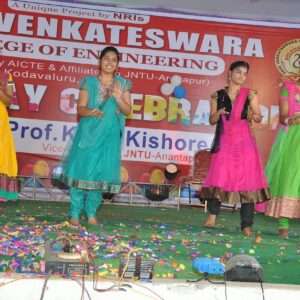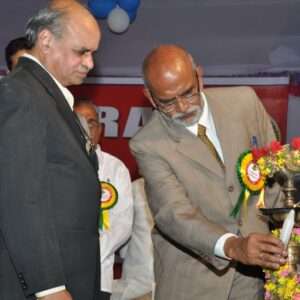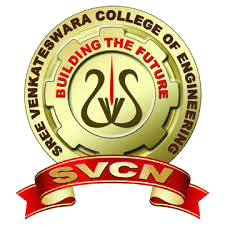ece
Department Profile
The Department of ECE was established in 2011 with an intake of 60 students in the UG program. The intake was enhanced to 120 in 2013 and 180 in 2014. The department aims at training students in advanced cutting edge technologies and imparts values so that they are equipped to deal successfully any challenges in life, by exploring and creating new avenues. Students are taught to recognize their potential & use it for their best advantage.
The faculty team consists of experts from the industry and academia. The department is highly praised for its activities in the technical front, contributing highly towards the development of cutting edge technologies and professionals. While building a solid foundation of the fundamentals, the students are also exposed to emerging trends in the industry and are moulded to be quality professionals of the future.
Electronics and Communication Engineering laboratories are equipped with state-of-the-art equipment and advanced software that enables the students to design of hardware circuits. Our students actively participate in organizing various events such as technical workshops through the IETE student chapter. Several faculty members and students are actively engaged in research and regularly publish their work in national journals and conferences. Students are continuously encouraged to do mini projects from III semester onwards and to exhibit projects at various colleges around the state.
To provide high quality education in the field of ECE and cultivate the students as skilled Engineers to compete globally and foundation of ethical & moral education to make significant contributions to the society.
MISSION:M1:To enrich Technical Skills of students through Effective Teaching and Learning practices for exchange of ideas and dissemination of knowledge.
M2: To enable the students with research and entrepreneur skill sets through state-of-the art laboratories, industry interaction and training on core & multidisciplinary technologies.
M3: To develop and instill creative thinking, Life-long learning, leadership qualities, Professional Ethics and social responsibilities among the students by providing value based education.
Programme Education Objectives(PEOs)
PEO1: To prepare the graduates to be able to plan, analyze and provide innovative ideas to investigate complex engineering problems of industry in the field of Electronics and Communication Engineering using contemporary design and simulation tools.
PEO2: To provide students with solid fundamentals in core and multidisciplinary domain for successful implementation of engineering products and also to pursue higher studies.
PEO3: To inculcate learners with professional and ethical attitude, effective communication skills, teamwork skills and an ability to relate engineering issues to broader social context at work place.
PROGRAM OUTCOMES
PO1: Engineering knowledge: Apply the knowledge of mathematics, science, engineering fundamentals, and an engineering specialization to the solution of complex engineering problems.
PO2: Problem analysis: Identify, formulate, review research literature, and analyze complex engineering problems reaching substantiated conclusions using first principles of mathematics, natural sciences, and engineering sciences.
PO3: Design/development of solutions: Design solutions for complex engineering problems and design system components or processes that meet the specified needs with appropriate consideration for the public health and safety, and the cultural, societal, and environmental considerations.
PO4: Conduct investigations of complex problems: Use research-based knowledge and research methods including design of experiments, analysis and interpretation of data, and synthesis of the information to provide valid conclusions.
PO 5: Modern tool usage: Create, select, and apply appropriate techniques, resources, and modern engineering and IT tools including prediction and modeling to complex engineering activities with an understanding of the limitations.
PO6: The engineer and society: Apply reasoning informed by the contextual knowledge to assess societal, health, safety, legal and cultural issues and the consequent responsibilities relevant to the professional engineering practice.
PO7: Environment and sustainability: Understand the impact of the professional engineering solutions in societal and environmental contexts, and demonstrate the knowledge of, and need for sustainable development.
PO8: Ethics: Apply ethical principles and commit to professional ethics and responsibilities and norms of the engineering practice.
PO9: Individual and team work: Function effectively as an individual, and as a member or leader in diverse teams, and in multidisciplinary settings.
PO10: Communication: Communicate effectively on complex engineering activities with the engineering community and with society at large, such as, being able to comprehend and write effective reports and design documentation, make effective presentations, and give and receive clear instructions.engineering and management principles and apply these to one’s own work, as a member andleader in a team, to manage projects and in multidisciplinary environments.
PO11: Project management and finance: Demonstrate knowledge and understanding of the engineering and management principles and apply these to one’s own work, as a member and leader in a team, to manage projects and in multidisciplinary environments.
PO12: Life-long learning: Recognize the need for, and have the preparation and ability to engage in independent and life-long learning in the broadest context of technological change.
Program Specific Outcomes (PSO’s)
PSO1:Higher Studies: Qualify in competitive examinations for pursuing higher studies by applying the fundamental concepts of Electronics and Communication Engineering domains such as Analog and Digital Electronics, Signal Processing, Communication & Networking, Embedded Systems, VLSI design and Control systems etc.
PSO 2:Framework: Get employed in allied industries through their proficiency in program specific domain knowledge, specialized software packages and computer programming or become an entrepreneur.
COURSE OUTCOMES
S.NO | Regulation | View |
1 | R15 Regulation |
Syllabus
S.No | Regulation | View |
1 | R20 B.Tech-III&IV Year | |
2 | R20 B.Tech-II Year | |
3 | R20 B.Tech-I Year | |
4 | R19 B.Tech-I-II-III & IV Year | |
5 | R15 B.Tech-I-II-III & IV Year |
LIST OF FACULTY
S.No | Name of the Faculty | Qualification | Designation |
1 | M.Tech and Ph.D | HOD & Associate Professor | |
2 | Dr.V.Prasad | M.Tech and Ph.D | Professor |
3 | Dr.T.Ravichandra | M.E and Ph.D | Professor |
4 | Dr. S.Devi | M.E and Ph.D | Associate Professor |
5 | Dr.C.Karthik | M.Tech and Ph.D | Associate Professor |
6 | Dr.P. Anandi | M.E and Ph.D | Associate Professor |
7 | Mr.P Rajesh | M.Tech,(Ph.D) | Assistant Professor |
8 | Mr.V.Praveen Kumar | M.Tech,(Ph.D) | Assistant Professor |
9 | Mr.P.Ravi Kumar | M.Tech | Assistant Professor |
10 | Mr.P.V.Narasimha Swami | M.E | Assistant Professor |
11 | Mrs.C.Vidya | M.Tech | Assistant Professor |
12 | Mr.P. Gopala Krishna | M.Tech | Assistant Professor |
13 | Mrs.K.Sumathi | M.Tech | Assistant Professor |
14 | Mr.P.Malyadri | M.Tech | Assistant Professor |
15 | Mrs.P Mohana | M.E | Assistant Professor |
16 | Mr.E.Venkateswarlu | M.Tech | Assistant Professor |
17 | Ms.G.Usha Rani | M.Tech | Assistant Professor |
18 | Mrs.A.Mary | M.Tech | Assistant Professor |
19 | Ms.T.Anitha | M.Tech | Assistant Professor |
20 | Mr.G.Surendra Babu | M.Tech | Assistant Professor |
21 | Mrs.P.Bhargavi | M.Tech | Assistant Professor |
22 | Mr.N.Kesav Kumar | M.Tech | Assistant Professor |
23 | Mr.K.Harshavardhan Reddy | M.Tech | Assistant Professor |
24 | Mr.P.Sravan Kumar Reddy | M.Tech | Assistant Professor |
25 | Mr.V.Venkata Sai Karthik | M.E/ M.Tech | Assistant Professor |
26 | Mr.A.Hemanth Kumar | M.Tech | Assistant Professor |
27 | Mr.G.Venkateswarlu | M.Tech | Assistant Professor |
28 | Mr.Sk.Jakeer Hussain | M.Tech | Assistant Professor |
29 | Mr.D.Vijaya Kumar | M.Tech | Assistant Professor |
30 | Mr.T.Nagarjuna | M.Tech | Assistant Professor |
31 | Mr.S.Hareesh | M.Tech | Assistant Professor |
32 | Mr.V.Mahesh | M.Tech | Assistant Professor |
33 | Mrs.Ch.Naveena Kumari | M.Tech | Assistant Professor |
34 | Mr.S.Jagadeesh | M.Tech | Assistant Professor |
35 | Mr.J.Sunil Kumar | M.Tech | Assistant Professor |
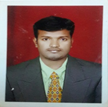
Dr. V Prasad
Ph.D.,Professor
View Profile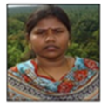
Dr.P.Anadhi
M.Tech, (Ph.D)Associate Professor
View Profile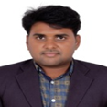
Dr.C.Karthik
Ph.D.,Assistant Professor
View Profile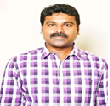
Dr.T Ravichandra
Ph.D.,Professor
View Profile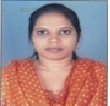
Dr. D. Rajani
Ph.D.,Associate Professor
View Profile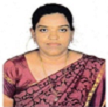
S. DEVI
Ph.D.,Associate Professor
View Profile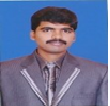
Mr. Pasupuleti Rajesh
M.Tech, (Ph.D)Assistant Professor
View Profile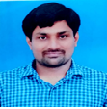
Mr. Vedantham Praveen Kumar
M.Tech, (Ph.D)Assistant Professor
View Profile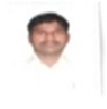
P.RAVI KUMAR
B.Tech ECE, MTech(DSCE)Assoc. Professor
View Profile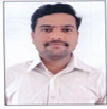
P.V.NARASIMHA SWAMI
M.TechAssoc. Professor
View Profile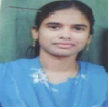
C VIDYA
M.TechAssistant Professor
View Profile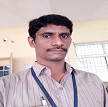
Mr.PADMANABIN GOPALAKRISHNA
M.TechAssistant Professor
View Profile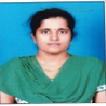
KOLAMALA SUMATHI
M.TechAssistant Professor
View Profile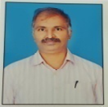
P.MALYADRI
M.TechAssistant Professor
View Profile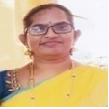
P.MOHANA
M.E.,Asst. Professor
View Profile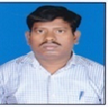
E.Venkateswarulu
M.TechAssistant Professor
View Profile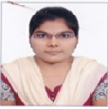
Ms. G.Usha Rani
M.TechAssistant Professor
View Profile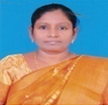
A.MARY
M.TechAssistant Professor
View Profile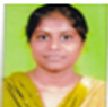
Ms.T.Anitha
M.TechAssistant Professor
View Profile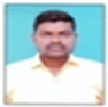
G.SURENDRA BABU
M.TechAssistant Professor
View Profile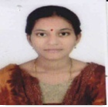
Mrs P.Bhargavi
M.TechAssistant Professor
View Profile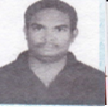
N.KESAV KUMAR
M.TechAssistant Professor
View Profile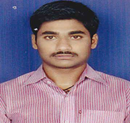
K HARSHAVARDHAN REDDY
M.TechAssistant Professor
View Profile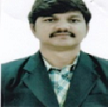
P SRAVAN KUMAR REDDY
M.TechAssistant Professor
View Profile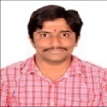
V.VENKATA SAI KARTHIK
M.TechAssistant Professor
View Profile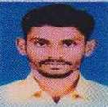
A. HEMANTH KUMAR
M.TechAssistant Professor
View Profile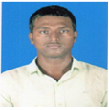
G.VENKATESWARULU
M.TechAssistant Professor
View Profile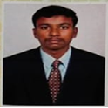
Sk.Jakeer Hussain
M.TechAssistant Professor
View Profile
D VIJAYA KUMAR
M.TechAssistant Professor
View Profile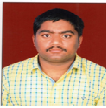
T.NAGARJUNA
M.TechAssistant Professor
View Profile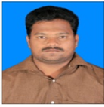
SONNA HAREESH
M.TechAssistant Professor
View Profile
V MAHESH
M.TechAssistant Professor
View Profile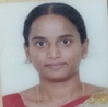
CH.NAVEENA KUMARI
M.TechAssistant Professor
View Profile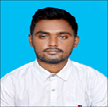
S.JAGADEESH
M.TechAssistant Professor
View Profile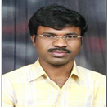
J.SUNIL KUMAR
M.TechAssistant Professor
View Profile
Dr DAGGUMATI RAJANI
Associate Professor & HOD-ECE
M.Tech,Ph.D, MISTE,MIAENG,MIFERP
SREE VENKATESWARA COLLEGE OF ENGINEERING
The Department of ECE was established in 2011 with an intake of 60 students in the UG program. The intake was enhanced to 120 in 2013 and 180 in 2014. The department aims at training students in advanced cutting edge technologies and imparts values so that they are equipped to deal successfully any challenges in life, by exploring and creating new avenues. Students are taught to recognize their potential & use it for their best advantage.Our Students recieved Two Gold Medals and one Pratabha Award and also one of the student got top 1% in NPTEL certification on Embedded Systems.
The faculty team consists of experts from the industry and academia.The department have eminant faculty,One of the faculty received Elite NPTEL Certification and also one more faculty act as a Judge for International Conference on Contemporary issues in Sciences and Management Research.
The department is highly praised for its activities in the technical front, contributing highly towards the development of cutting edge technologies and professionals. While building a solid foundation of the fundamentals, the students are also exposed to emerging trends in the industry and are moulded to be quality professionals of the future.
Electronics and Communication Engineering laboratories are equipped with state-of-the-art equipment and advanced software that enables the students to design of hardware circuits. Our students actively participate in organizing various events such as technical workshops through the IETE student chapter. Several faculty members and students are actively engaged in research and regularly publish their work in national journals and conferences. Students are continuously encouraged to do mini projects from III semester onwards and to exhibit projects at various colleges around the state.
Adequate and well Equipped Laboratories
text-align: justify;
text-justify: inter-word;
The Department has very good facilities and technical support to meet the program requirements
which are follows:
The facilities and technical support are provided as per AICTE and University norms (classrooms,
laboratories, equipment, etc.,).
The department has adequate and well equipped laboratories as per the curriculum.
All the laboratories have sufficient technical man power.
ELECTRONIC DEVICES & CIRCUIT LABORATORY
This is the core lab, which hosts basic experiments such as device
characteristics and basic analog circuits. This lab is large enough to
accommodate a variety of experiments, allowing students to gain enough
experience to quickly adopt experiments in the department’s more sophisticated laboratories.
All basic electronic devices and their characteristics & applications can be studied. Using these devices the small electronic circuits can de designed, constructed and verified. In order to introduce the students with basic components of electronics this lab is furnished with analog Oscilloscopes, function generators and digital multi-meters.
Students can perform experiments on P-N junction diode, Zener Diode, rectifiers, filters, transistor biasing and their characteristics in different modes, UJT characteristics, FETs characteristics, CE& CC amplifier, FET amplifier.
Major Equipment :
1) Analog & Digital Ammeters
2) Analog & Digital voltmeters
3) Digital Multimeters
4) Dual Regulated Power Supply
5) Cathode Ray Oscilloscope(30 MHz)
6) Function Generators
7) Decade Resistance Box
8)Decade Capacitance Box
9)Decade Inductance Box
10) Bread boards
11) CRO Probes
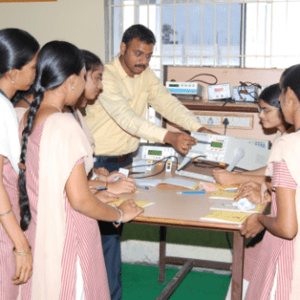
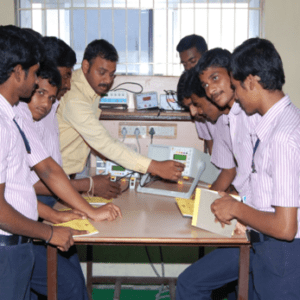
ELECTRONIC CIRCUIT ANALYSIS LABORATORY
<p=style=”text-align: justify; text-justify: inter-word;”> In this lab the students design the different single ,multi stage amplifiers, BJT and MOSFET amplifiers frequency response, feed back amplifiers, large signal amplifiers and different oscillators through Mutisim simulator software tool. Students can also check the results through hardware components also in laboratory.
Major Equipment :
1) Analog & Digital Ammeters
2) Analog & Digital voltmeters
3) Digital Multimeters
4) Dual Regulated Power Supply
5) Cathode Ray Oscilloscope(30 MHz)
6) Function Generators
7) Decade Resistance Box
8)Decade Capacitance Box
9)Decade Inductance Box
10) Bread boards
11) CRO Probes
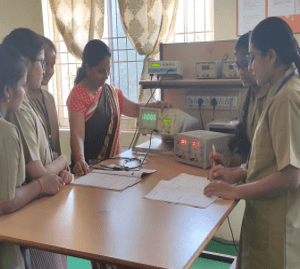
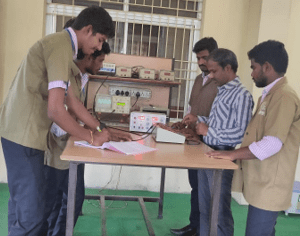
ANALOG &
DIGITAL COMMUNICATIONS LABORATORY
We live in an era where numerous types of electronic communication are quickly developing, necessitating the recruitment of fresh engineering graduates who are prepared to innovate, construct, and operate with these systems. Currently, the communications lab is used to provide ECE students with hands-on exposure with basic electronic communications systems.
The concepts of all type of modulation & demodulation can be studied. The recent communication techniques can be demonstrated with available equipments. Students conduct experiments in a communication lab where they become acquainted with oscilloscopes, signal generator, RF Generators. Measurement of common signals such as sinusoids and periodic square waves are conducted in both the time and frequency domain. The training and experience that ECE students gain in this laboratory enhance their understanding of analog communication systems.
The experiments are set up in such a way that theoretical concepts covered in lectures are revisited and put into practise. The studies cover analog communication fundamentals such as amplitude modulation and frequency modulation, pulse analog modulation, pulse code modulation ,pulse width modulation, time division multiplexing, phase locked loop and PSK, FSK, DPSK.
Major Equipment :
1) AM/FM modulation and demodulation
2) Pulse width modulation
3) Pulse position modulation
4) Pulse amplitude modulation and Demodulation
5) Analog signal sampling and reconstruction unit
6) Basic Antenna measurement systems
7) DSB/SSB AM Transmitter and Receiver.
8) Time Divison multiplexer and demultiplexer
9) Analog Oscilloscope
10) Digital Storage Oscilloscope
11) Signal Generator
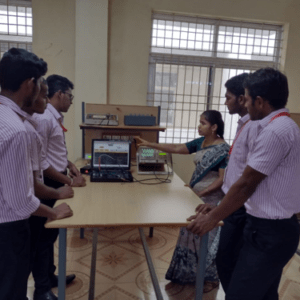
DIGITAL SIGNAL PROCESSING LAB
This laboratory caters for the growing requirements of the graduate students of the college. It is connected with the College LAN and is used for a wide variety of applications. It is equipped with computers.
The aim of this laboratory is to provide required computing and simulations facilities to the undergraduate students in order to meet their requirements of digital signal processing. The main emphasis is to do the project work on designing electronics and digital circuits using latest application packages such as MATLAB, which are used by the undergraduate students.
&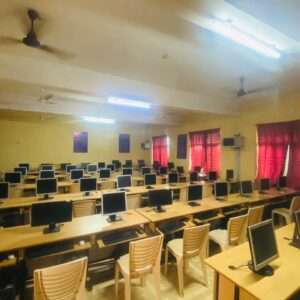
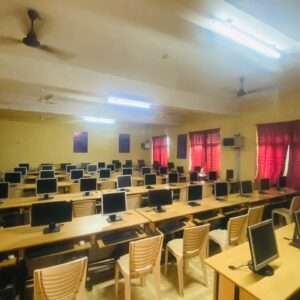
INTEGRATED CIRCUITS APPLICATIONS LABORATORY
As analog concepts are integrated into the undergraduate engineering curriculum, this lab will enable them to work with analog & digital IC’S. Laying a strong foundation for electronic engineers this lab makes the students understand the fundamentals of linear IC’s. This Lab is where our students gain practical experience in the use of basic hardware components. Through experiments, students become familiar with IC 555 timer and its applications, voltage regulators using various IC’s, IC 741 operational amplifier and its various applications like adder, subtractor, comparator, integrator, differentiator , waveform generators and filters.
Major Equipment :
1) Dual Regulated Power Supply
2) Cathode Ray Oscilloscope(30 MHz)
3) Function Generators
4) Digital storage oscilloscopes
5) Digital Multimeters
6) TI Analog-ASLK Pro kits.
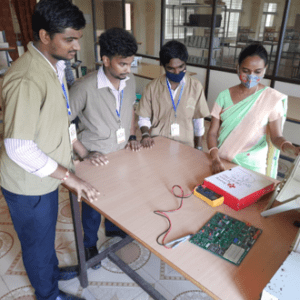
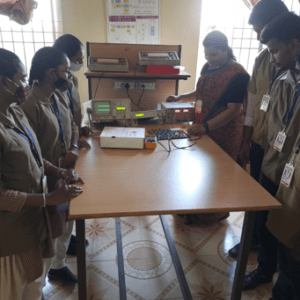
MICROPROCESSOR AND MICROCONTROLLERS LABORATORY
Advances in digital concepts will be studied in the subject of Microprocessors & Microcontrollers. This lab will be enabling the undergraduate students to work with various microprocessors & microcontrollers. Laying a strong foundation for electronic engineers, this lab makes the students to understand the fundamentals of interfacing, of microprocessors and microcontrollers with input, output devices. Through experiments, students become familiar with 8086 & 8088 microprocessors and also with 8051 microcontrollers. Students are also worked with latest MSP430 Microcontroller besides the traditional 8-bit Intel 8051 microcontroller architecture.
Major Equipment:
1) 8086 Microprocessors Trainer kit
2) 8051 Microcontroller Trainer kit
3) MSP430 Microcontroller Launch pad kit
4)8279 -Keyboard/Display Interface
5) 8259-Interrupt Controller
6) Dual Analog to Digital Converter Interface
7) Traffic Light Interface
8) 4×4 Matrix Key Interface
9) 7-Segment LED Display Interface
10)Stepper Motor Interface
11) CC3100 Wireless Booster Pack
12) CC Studio V6- Software Tool

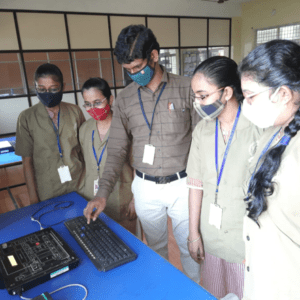
MICROWAVE &OPTICAL COMMUNICATIONS LABORATORY
In this Lab students are given hands-on experience on setting up the microwave bench for studying the characteristics of microwave sources, scattering parameters of microwave components and radiation pattern of microwave antennas. This Lab fills the gap between theory and experimental techniques. Students will also get exposure to the use of microwave test equipment for making measurements of frequency, VSWR, attenuation, S-parameters, impedance and guide wavelength.
Major Equipment:
1) Klystron Based Microwave Trainer Benches(X-Band)
2) Passive Waveguide Components(X-Band)
3) Gunn Diode
4) Klystron Power Supply
5) VSWR Meter
6) Optical Fiber both Transmitter and Receiver
7) LASER Diode
8) Cooling Fans
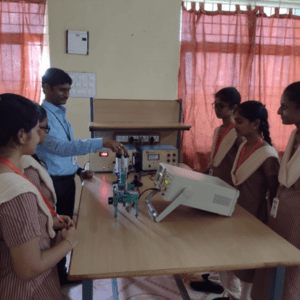
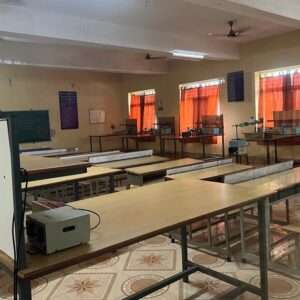
ELECTRONIC & COMPUTER AIDED DESIGN LAB
The Electronic Computer Aided Design (ECAD) laboratory aims to produce trained professional engineers on par with industry standards and also to significantly contribute to the design aspects of VLSI Design and Device Modelling. The laboratory is equipped with the latest IC design tools and sophisticated hardware facilities which help students to learn the required skills thoroughly. The laboratory caters to the need of the Undergraduate (UG) students.
Hardware Facilities:
- FPGA Kits
- CPLD Kits
PCs Software Tools:
- Xilinx® ISE14.1-System edition
- MultiSim 14.1
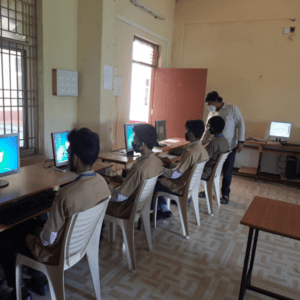
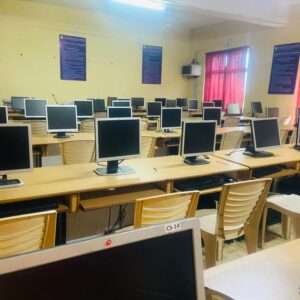
Faculty Achievements
Publications
S.No | Academic Year | View |
1 | 2022-23 | |
2 | 2021-22 | |
3 | 2020-21 | |
4 | 2019-20 |
Patents
S.No | Year | View |
1 | 2022-23 |
Short Term Training Programs(STTP’s)
S.No | Year | View |
1 | 2022-23 | |
2 | 2021-22 | |
3 | 2020-21 |
Faculty Development Programs(FDP’s)
S.No | Year | View |
1 | 2021-22 |
ECE NPTEL VIDEOS
ECE Odd Semester
| Year | Subject | Links |
|---|---|---|
| II Year |
Electronic Devices and Circuits (EDC) |
View
View View View View |
|
Switching Theory and Logic Design (STLD) |
View
View View |
|
|
Signals and Systems (S&S) |
View
View View View View View |
|
|
Probability Theory and Stochastic Processes (PTSP) |
View
View View |
|
|
Electrical Technology (ET) |
View
View View View |
|
| III Year |
Computer Organization (CO) |
View
View View View |
|
Antennas and Wave Propagation (AWP) |
View
View View View |
|
|
Digital Communication Systems (DCS) |
View
View |
|
|
Digital System Design (DSD) |
View
View View View |
|
|
MEMS & Microsystems (MEMS) |
View
View View View View |
|
|
Linear Integrated Circuits and Applications (LICA) |
View
View View View |
|
| IV Year |
Optical Fiber Communication (OFC) |
View
View View View View |
|
Embedded Systems (ES) |
View
View View View |
|
|
Microwave Engineering (MWE) |
View
View View View View View |
|
|
Data Communications and Networking (DCN) |
View | |
|
Radar Systems (RS) |
View
View View View View View View |
|
|
Digital Image Processing (DIP) |
View
View View View View |
ECE Even Semester
| Year | Subject | Links |
|---|---|---|
|
II Year |
Analog Communication Systems (ACS) |
|
|
Electromagnetic Theory and Transmission Lines (EMTL) |
||
|
Electronic Circuit Analysis (ECA) |
||
|
Data Structures (DS) |
||
|
Control Systems Engineering (CSE) |
||
|
Digital Signal Processing (DSP) |
||
|
MATLAB Programming (MP) |
||
|
Electronic Measurement and Instrumentation (EMI) |
||
|
VLSI Design (VLSI D) |
||
|
Micro Processors and Micro Controllers (MP & MC) |
||
|
IV Year |
Low Power VLSI (LP VLSI) |
|
|
Radio Frequency and Integrated Circuits (RFIC) |
I YEAR-I SEM
| S.No | Subject Name | Notes | PPT |
|---|---|---|---|
| 1 | Linear Algebra & Calculus | ||
| 2 | Applied Physics | ||
| 3 | Communicative English | ||
| 4 | Fundamentals Of Electrical Circuits | ||
| 5 | Engineering Drawing |
I YEAR-II SEM
| S.No | Subject Name | Notes | PPT |
|---|---|---|---|
| 1 | Differential Equations and Vector Calculus | ||
| 2 | Chemistry | ||
| 3 | C-Programming & Data Structures | ||
| 4 | Electronic Devices & Circuits |
II YEAR-I SEM
II YEAR-II SEM
| S.No | Subject Name | Notes | PPT |
|---|---|---|---|
| 1 | Anolog Communication Systems | ||
| 2 | Digital Electronics and Logic Design | ||
| 3 | EMTL | ||
| 4 | LICA | ||
| 5 | probabitity theory and stochastic process |
III YEAR-I SEM
| S.No | Subject Name | Notes | PPT |
|---|---|---|---|
| 1 | CAO | ||
| 2 | CONTRL SYSTEMS | ||
| 3 | DSP | ||
| 4 | MPMC NOTES | ||
| 5 | PCB DESIGN |
IIIYEAR-II SEM
| S.No | Subject Name | Notes | PPT |
|---|---|---|---|
| 1 | pos | ||
| 2 | Antenna and Mwe | ||
| 3 | EMBEDDED SYSTEMS | ||
| 4 | MS | ||
| 5 | VLSI design |
IV YEAR-I SEM
| S.No | Subject Name | Notes | PPT |
|---|---|---|---|
| 1 | VLSI design | ||
| 2 | MICROWAVE | ||
| 3 | EMBEDDED SYSTEMS | ||
| 4 | DCN |
IV YEAR-II SEM
| S.No | Subject Name | Notes | PPT |
|---|---|---|---|
| 1 | RFIC | ||
| 2 | LPVLSI |
Student Achievements
S.NO | Academic Year | View |
1 | 2022-23 | |
2 | 2021-22 | |
3 | 2020-21 |
Student Achievements
S.NO | Academic Year | View |
1 | 2022-23 | |
2 | 2021-22 | |
3 | 2020-21 |
INTERNSHIPS
S.No | Year | View |
1 | 2022-23 | |
2 | 2021-22 | |
3 | 2020-21 | |
4 | 2019-20 | |
5 | 2017-18 |
INDUSTRIAL VISITS
S.No | Year | View |
1 | 2021-22 | |
2 | 2019-20 | |
3 | 2018-19 | |
4 | 2017-18 | |
5 | 2016-17 | |
6 | 2015-16 | |
7 | 2014-15 | |
8 | 2013-14 |
PLACEMENTS
S.No | Year | View |
1 | 2021-22 | |
2 | 2020-21 | |
3 | 2019-20 |
Student Resources
Student Association
S.No | Year | View |
1 | 2022-23 | |
2 | 2021-22 | |
3 | 2020-21 |
Professional Society (IETE Student Forum (ISF) )
The Department of ECE was started a IETE Students Forum (ISF) Inaugurated on 03.02.2013 by Dr. S.Varadarajan, Secretary, APSCHE, Hyderabad.
Speech by
Sri. Penuballi. Babu Naidu,Chairman
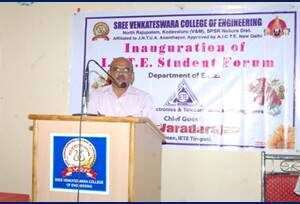
Speech by
Mrs.S.V.Padmaja Rani ,ECE, HOD

Lightening the Lamp by
Dr. S.Varadarajan

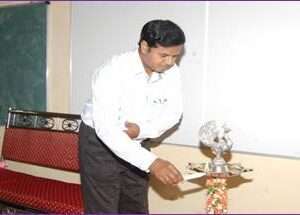
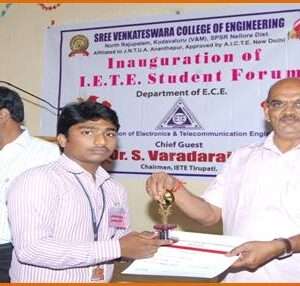





| 1 | Program Report | Click Here |
| 1 | Program Report | Click Here |
ELECTRONICS AND COMMUNICATION ENGINEERING
CONSOLIDATED LIST OF MOU’S
S.No | Industries/ Institutions | Department |
1 | Takeoff Edu Group |  |
2 | TRAID |  |
3 | Global EDGE |  |
4 | Lets Learn Guru | 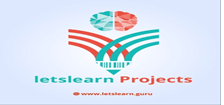 |
5 | ANDHRA PRADESH INFORMATION TECHNOLOGY ACADEMY(APITA) | 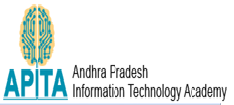 |
News Letter
S.No | Name of the Event | View |
1 | Halfyearly News Letter-AY-2022-23-issue-2 | |
2 | Halfyearly News Letter-AY-2022-23-issue-1 | |
3 | Halfyearly News Letter-AY-2021-22-issue-1 |
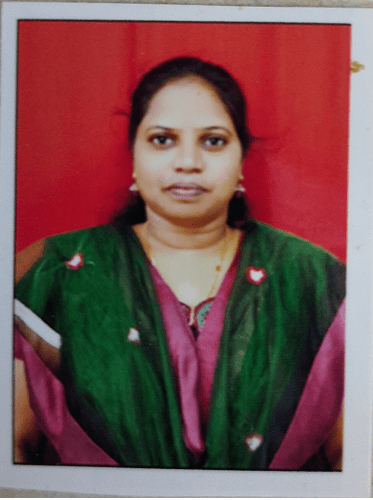
Dr.D.Rajani


